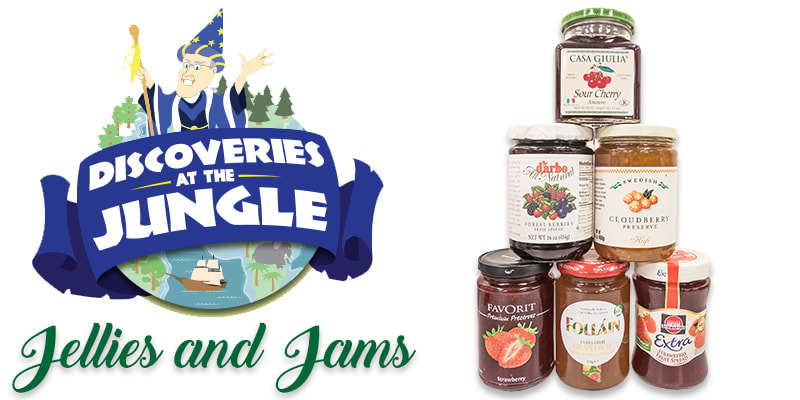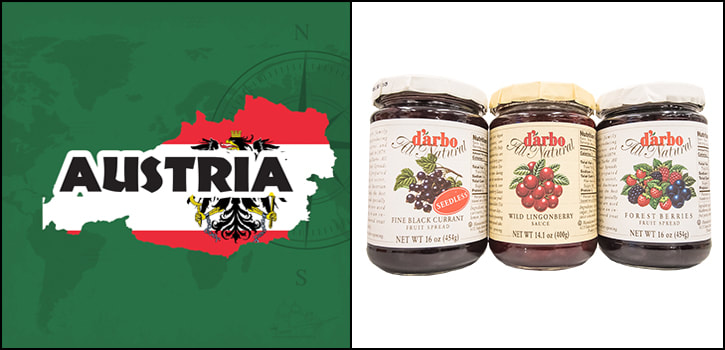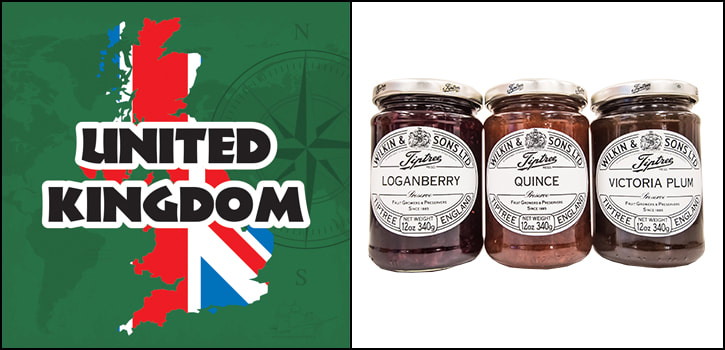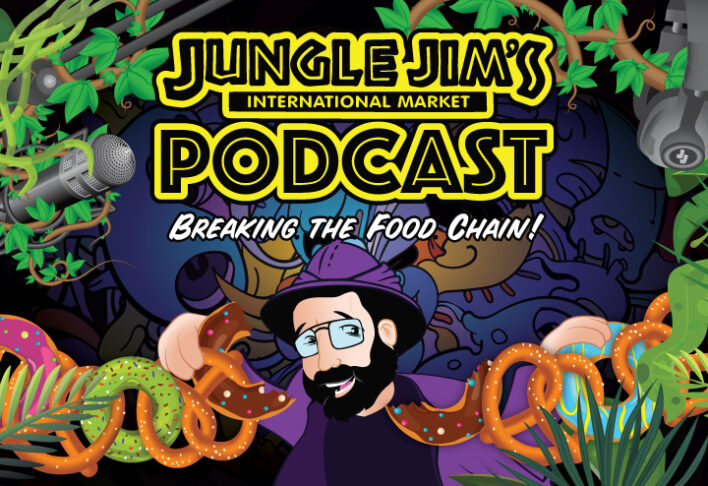
Discoveries at the Jungle D’arbo Fruit Spreads from Austria and Wilkin and Sons Conserves from England
Back to feed- Posted: 10/5/2017
- Categories: Discoveries at the Jungle
While we might have simplified the theme this month to just jams and jellies, we’re really talking about the whole world of fruit preserves, which encompasses jams, jellies, chutney, curds, spreads, and more! Fruit preserves are preparations of fruits, vegetables, and sugars that are canned or sealed for long term use. The different styles of ingredients, fruits, and vegetables in preserves determines which category they fall under.
The origin of fruit preserves are a little cloudy. Some say humans started preserving fruit around the 1st to the 4th century AD. Although, we didn’t see similar styles of preserves that we see today until Napoleon offered a reward to help feed his armies by preserving food easily – in 1785. From there we started seeing different styles of preserves such as jams, jellies, marmalades, and more!
Let’s sit back and discover fruit preserves from around the world, and hey, maybe even learn a little more about them in the process!
D’arbo Fruit Spreads – Austria
The D’arbo family started making jams, syrups, and fruit liquors in 1879, the growth of the company not even hindered by 2 world wars. They have had to move their factory only once and the business is in it’s 5th generation of family ownership. You can enjoy their spreads in black cherry, blackcurrant, rosehip, plum, lingonberry, forrest berry, and redcurrant.
Where you can find these: Fairfield Location: Orange 19
Did you know? Jam is made out of mashed fruits, sugar, and a little bit of pectin, a substance that makes everything gel and stick together. Jam also contains fruit juice, giving the sweet goo an almost opaque appearance. While not chunky like preserves, jam is typically more solid and substantial than jelly.
Often called Tiptree, after the region in England that it’s manufactured, Wilkin and Sons produces some of the finest preserves in the country, and have been doing so since 1885. The company farms 1000 acres and grows most of its own fruit, including strawberries, plums, cherries, raspberries, mulberries, quinces, medlars, and little scarlets. They also operate their own tea rooms in the UK, as well as a specialty bakery.
Where you can find these: Fairfield Location: Orange 26
Did you know? Marmalades were a kingly delicacy and many a royal sweet tooth demanded an array of fruit flavors rich with sugar. Chroniclers of more regal eras describe at length the magnificent feasts of Louis XIV, which always ended with marmalades and jellies served in silver dishes. Each delicacy served at Versailles was made with fruit from the king’s own gardens and glasshouses, where even pineapples were grown and candied like less exotic fruits.
St. Dalfour Fruit Spreads From France and Follain Extra Fruit Jams From Ireland
Hafi Preserves from Sweden and Welsh Lady Curds from Wales
Scandinavian Delight Fruit Spreads from Denmark and Schwartau Fruit Spreads from Germany
Sarantis Preserves From Greece and Livada Preserves from Romania
Favorit Preserves from Switzerland and Casa Giulia Preserves from Italy





